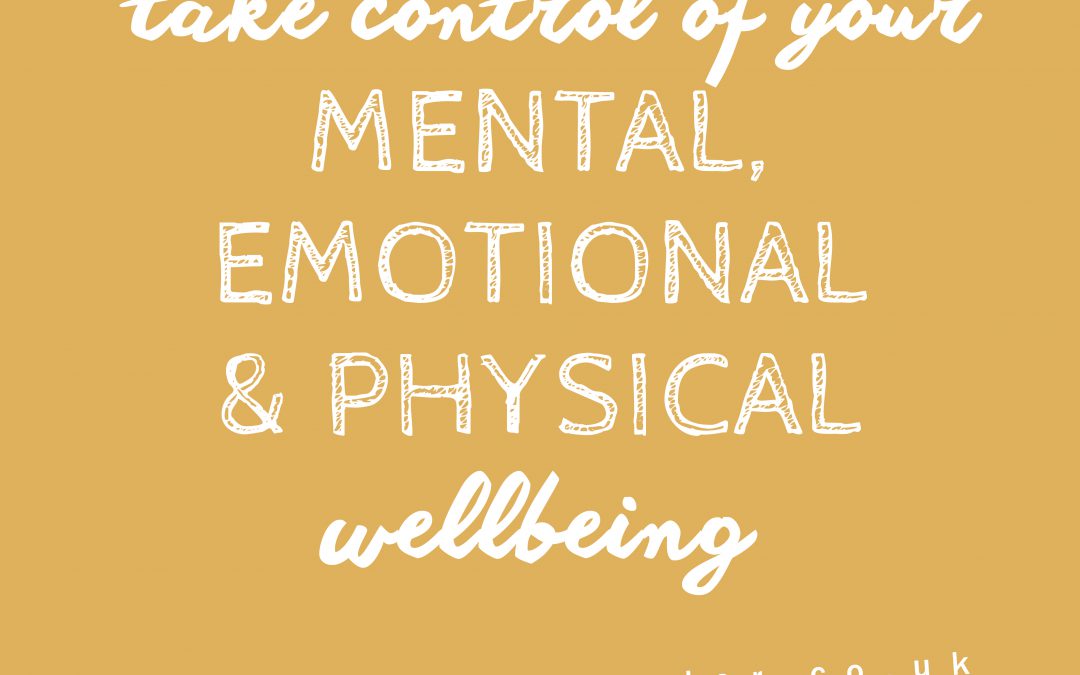After another discussion with someone relaying the words “I don’t have mental health” I wanted to share my view on what mental health means to me. I have come to understand more about what mental health actually is in the most recent years, and have unlearned what I had wrongly learned as a child.
Mental health has been spoken about with such negative connotations, we didn’t stop to recognise it as something we all have and our responsibility to look after it. We understand physical health to be the state of your physical wellbeing.
Being fit, strong and uninjured is one end of the scale. We perceive mental health to be the other end of the scale, to be someone who is seriously unwell. With this stigma, we are afraid to be labelled as “crazy’, ‘mad’ or fear that people will look at us differently if we admit to having mental health or talk about it.
Mental health, physical health emotional health
Mental health is a measure of the state of your mental wellbeing. I see it as a sliding scale – at one end of the scale is feeling well, and at the other is feeling unwell, with a chasm of issues in between that can affect your mental health.
Just like physical health, mental health needs to be nurtured, supported and cared for. We have learnt to support physical health with the foods we eat, movement, exercise, sleep and fluid intake.
Physical health has become part of our lifestyle by giving your body what it needs to work you can support a healthy, functioning body. Emotional health is equally as important as physical and mental health, the three are an integral foundation of your overall health. Emotional health is about having an awareness of how your emotional state impacts your thoughts and behaviours.
What happens when your health status changes
Physical symptoms of ill health or injury can be obvious as there is pain, body changes, swelling, bruises, etc. Mental health is a little more subtle. No obvious body changes, no physical pain (although the emotional pain is real), no swelling or bruising in sight. These subtle changes increase. I say increase because that negative self talk starts early in our life and becomes normal.
We hear family and friends being negative about other people, about the world and other influences. Our self talk fits right in, so an increase in these isn’t noticed. We are encouraged to check our bodies for changes, to know our bodies so we can catch any changes quickly. But no one advises us on what is normal self talk, healthy self talk and unhealthy self talk, so we just accept it.
We have an inner voice, and we get used to hearing the negative self talk, self opinion and self judgement, we accept it. We work hard to repair physical ailments, we can do the same for our mental health by improving our self talk. The power is in changing the inner voice to be our inner cheerleader.
I suffer with back problems and can be in pain every day. I accept and live with the pain, I know that when it gets unbearable I can and will go to the doctors to get pain medication. From my teenage years, I remember having negative thoughts about myself, my body, my weight, my appearance and sometimes even my life. Questioning and comparing myself were an everyday occurrence, but I lived with it and got on with life.
I remember a time before my worst year of depression, I was constantly thinking “what is going on with me?”, “I need to do something”, “I’m not coping well”, “I’ll be fine”, “I’m a rubbish parent”, “I’m failing in life”, while at the same time trying to keep all the balls I had been juggling faster and faster from falling. I never thought to visit my GP or to look after my emotional or mental health, or ask for help until I couldn’t cope any more. And after writing this, it seems I do the same with my physical health – I wait until I can’t cope anymore and am crying in pain before I go to my GP. I was emotionally and mentally broken for a long time before I sought help.
Improving your mental health
When living with a mental health disorder, we are often left feeling powerless. Life feels out of control with no visible exit route. There is no right or wrong way to self care for you to improve your mental health. The key is, that it is right for you. There are the traditional routes of medication, talking therapies, CBT, EMDR, etc. There are complementary therapies – massage, homeopathy, Reiki, reflexology, Yoga, Mindfulness, coaching etc.
And there are self help strategies which help inject calm, happiness and or room to relax into your days including exercise, movement, journaling, reading, doing a hobby that makes you feel happy, walking, etc. It is important to explore what works for you – there is no one way fits all.
Self knowledge is a super power. The more you know about yourself, the more in control of the right choices for you. Coaching helps you build an understanding of yourself and how you can help yourself.
If you’d like to know more about coaching please get in touch on 07966189084 or hayley@hayleytwheeler.co.uk

